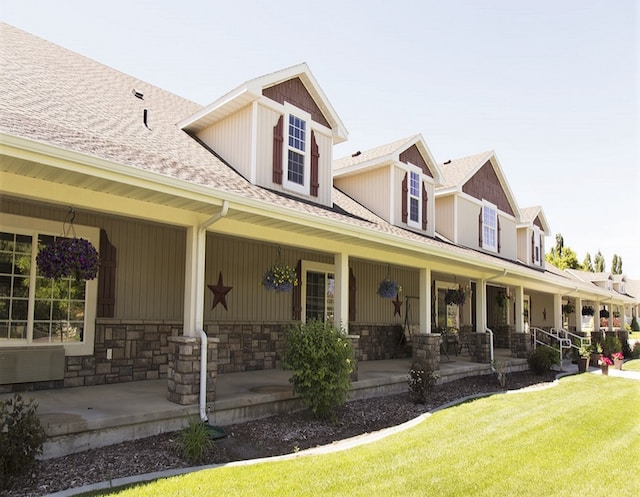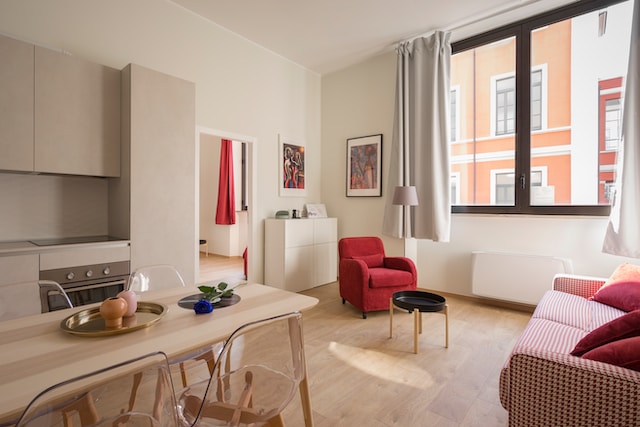Whether you’re pondering your future options or have a loved one who needs more help, an assisted living facility is a popular option. However, not all locations are created equal. There are many details you should examine before choosing an assisted living facility for your loved one.
Picking an assisted living facility is a big step in the life of a family, no matter what your family is like. Keep reading as we talk about some tips to help you make the best choice available when choosing assisted living options.
Decide Between Assisted Living and Nursing Homes
First, it’s vital to determine whether you want an assisted living facility or a nursing home. Both offer care, meals, and a room for the individual staying, but the difference between assisted living and a nursing home is the level of care the resident requires.
Assisted living locations are typically best for socially active seniors who don’t need extensive medical care but maybe can’t do rigorous activities, like yard work on their own. There are many activities and opportunities for independence for those living in assisted living while still absolving them of some of the more labor-intensive tasks of living alone.
Residents of a nursing home, on the other hand, typically live there because they need long-term, serious medical care. Their health issues are more serious, so they need more intricate care, resulting in a higher cost of living for residents.
If you or your loved one needs extensive care, consider a nursing home. If there’s a desire for independent socialization with assistance, assisted living is better. Assisted living allows for an easier transition for the new resident, especially if they have never lived in a senior home before.
Related: 7 Signs Your Parents Need More Help

Check Reviews
The internet is an incredible tool, and one of the best things you can see are reviews of locations without ever stepping foot in the building. Google is the best place to go. Type in your location and search assisted living buildings near you, and reviews from residents will appear.
Blogs and forums also typically have information about assisted living facilities. It’s best to know the specific names of the building if you want to check reviews in this manner. Make a list and note the reviews to see which facility comes out on top.
If you know people in the area, ask around for their opinions on nearby assisted living facilities. In some instances, it might be possible to speak directly to residents to determine how they feel about living there.
Consider Price Points
Price points also matter. Some assisted living facilities can cost a ton of money, and the value might not match up. It’s ideal to compare the price point to what you get out of the building, determining which room and location is best for your life or the life of a loved one.
Many assisted living facilities offer lower price points based on the room selected, food packages, and medical care. Map out what you need in an assisted living facility and set boundaries to help you gain access to everything for a practical price point you can afford.
Sometimes, getting what you want could mean paying a little more or sacrificing a few of your desires for something more in your budget. Ultimately, it’s up to you to determine what will lead to the best quality of life.
Examine Meal Options
A good meal to look forward to three times a day will drastically improve your quality of life. It’s always ideal to check into the dining options for an assisted living facility – poor-quality food is a reasonable explanation for not choosing one particular spot for you or your loved one.
Check with staff members to see if they can accommodate dietary preferences, allergies, or meal styles necessary for the resident’s health. If possible, visit the dining hall during mealtime to see what portions look like for those who live there.
Also, eating healthy can improve one’s chances of living for a long time. It’s vital to pick somewhere that offers fruits, vegetables, proteins, and healthy grains at every meal time.
Look At Proximity to Loved Ones
Whether you’re moving in or helping a loved one find their new home, it’s ideal for families to remain close to each other. You’ll be able to visit them often, and if the other way around, your family members can make frequent trips to see you.
An active social life can help you live longer, and an excellent way to socialize is to remain in contact with parents, children, friends, aunts, uncles, and more. An ideal assisted living facility isn’t too far away from family, friends, or a support group your family member enjoys.
Unless you have a quality reason for choosing an assisted living facility far out of town, there’s little reason to shift away from loved ones, especially as more time passes. Carefully consider the proximity to family and friends as you narrow down your facility selection.
Consider Possible Memory Care Options
It’s vital to consider assisted living facilities with memory care options if you have a loved one with Alzheimer’s or dementia. In these buildings, routines are set to reduce stress levels for individuals, and more precautions are put in place to keep them safe and comfortable.
Alzheimer’s impacts nearly 5.7 million Americans, so many assisted living facilities are prepared to accommodate folks with the disease. It permits independence but puts healthy boundaries on the living experience for their safety.
Staff at memory care facilities have more training than other locations specializing in Alzheimer’s and dementia. They perform frequent check-ins on residents under their care throughout a typical day.
Check Out Room Choices
Like a traditional apartment building, there are many room choices available for residents at an assisted living facility. Each costs a different amount, so it’s critical to consider your budget and desired living situation before picking a place.
Common room choices include the following:
- Shared room with one other resident
- Studio
- Single-bedroom
- Two-bedroom
Most facilities don’t have options that go beyond the two-bedroom selection.
If you’re set on a two-bedroom but have a limited budget, it’s always a good idea to shop around to find an assisted living facility with excellent amenities and a solid price for your desired room. Not every assisted living facility has the same rooms available, and keep in mind that some might require residents to share.

Count Staff-To-Resident Ratio
The ratio of staff working in the building to residents matters. The more residents a single staff member must handle, the less care and individualized attention you or a loved one will receive during a typical day. While the independence might be a little more, it will be frustrating when health or memory issues arise.
Ideally, there will be no more than eight residents per staff member. Even the most considerate employee will struggle to keep tabs on more than that.
Watch Culture
Like any other location where dozens of people live together, there will be a culture that develops between residents, workers, and those who visit. Some assisted living facilities are home to a toxic culture, while others are uplifting and positive.
If you visit the facility, keep an eye out for indications of the culture. How do people talk to each other? Does it seem like the employees enjoy interacting with the residents? Every detail matters for quality of life.
Examine Offered Events and Activities
The more activities and events offered at an assisted living facility, the more opportunities there are for making friends and stimulating the brain in beneficial ways for an aging mind. One study shows that broader social interactions keep older adults more active, which is crucial for health.
Some assisted living locations provide a printed paper calendar for every month, listing the activities available for residents. You can ask for this calendar and look to see if the events offered seem exciting or aren’t your cup of tea.
Every facility will vary in its structure of activities throughout the year. Some facilities may offer physical activities like yoga or tai chi, while others focus more on religious offerings like church service and Bible classes.
If heading to church and similar locations once a week is valuable, ensure the facility offers rides to these locations. It will make everything feel a little more normal for your family member and ensure the transition to assisted living goes smoothly.

Determine Staff Expertise
The best assisted living facility is filled with staff trained and prepared to answer any questions you have before moving in and during your (or your family member’s) stay. They should be ready to help, whether regular assistance is needed or your family member only requires help in an emergency.
It’s always a good idea to speak to the staff before moving in or setting up a place for your family member. They should be able to answer any questions you have, whether it has to do with health concerns, the safety of the residents, or activities available throughout the week.
Check out their credentials, too. Some assisted living locations will reveal the education and training of their employees, which makes it much easier to feel comfortable with an assisted living facility.
Final Thoughts on Assisted Living Facility Selection
Overall, there are many valuable items to consider before landing on a final assisted living option. From the food offerings to the room choices, every little thing matters for your comfort or for the living circumstances of a loved one.
Whether you plan on securing a room next week or a couple of years, it’s never too early to begin working through the options. Make a list and take a trip to make life easier when moving yourself or a loved one into an assisted facility building.
Think your family member is too independent for assisted living just yet? Take a look at a 55+ community for them instead.


















